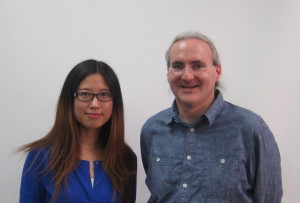I would like to congratulate Dr. Xue Cai for defending her PhD and filing her doctoral disseration “Global Analysis and Modeling on Decentralized Internet” in Dec. 2013.

From the abstract:
Better understanding about Internet infrastructure is crucial to improve the reliability, performance, and security of web services. The need for this understanding then drives research in network measurements. Internet measurements explore a variety of data related to a specific topic and then develop approaches to transform data into useful understanding about the topic. This process is not straightforward since available data often only contains indirect information that may appear to have limited connection to the topic.
This body of work asserts that systematic approaches can overcome data limitations to improve understanding about important aspects of the Internet infrastructure. We demonstrate the validity of our thesis statement by providing three specific examples that develop novel approaches and provide novel understanding compared to prior work. In particular, we employ four systematic approaches—statistical, clustering, modeling, and what-if approach—to understand three important aspects of the Internet: the efficiency and management of IPv4 addresses, the ownership of Autonomous Systems (ASes), and the robustness of web services when facing critical facility disruption. These approaches have addressed a variety of challenges posed by indirect, incomplete, over-fit, noisy and unknown data; they in turn enable us to improve understanding about the Internet.
Each of our three studies explores a different area of the problem space and opens a much larger area of opportunity. The data limitations addressed by our approaches also occur in many other problems. We believe our approaches can inspire future work to solve these problems and in turn provide more useful understanding about the Internet.
![Estimated impact on user QoE in four cable cut incidents (Figure 13 from [Cai13c])](http://ant.isi.edu/blog/wp-content/uploads/2013/12/qoe_play_time_350k_vod_3d_all-300x200.png)